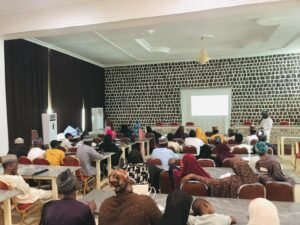By Mustapha Salisu
In its ongoing effort to address corruption across the country, the Centre for Information Technology and Development (CITAD) has organized a two-day capacity-building training for youths on accountability and anti-corruption in Kano State.
With support from MacArthur Foundation, the training attracted 40 participants from several northern states including Kano, Bauchi, Kogi, Abuja among others and is currently taking place at Ni’ima Guest Palace, Kano.
In his welcome address, CITAD’s Executive Director, Engr. Y.Z Ya’u, explained that corruption, defined as the abuse of entrusted power for private gain, undermines fairness, justice, and efficiency in the nation.
He added that corruption has become rampant due to the lack of accountability among public office holders, which has allowed corrupt practices to thrive.
Represented by Ali Sabo, CITAD’s Campaigns and Communications Officer, Ya’u revealed that the training aims to equip young people with the knowledge necessary to actively participate in the fight against corruption.
Ali Sabo highlighted that corruption manifests in various forms such as bribery, embezzlement, nepotism, cronyism, and fraud. He emphasized that these corrupt practices hinder economic, political, and social development.
“In the absence of accountability, corruption will take root. However, citizens can promote accountability through civic engagement, social media, and demanding transparency,” he stated.
Sabo further disclosed that over the two-day training, participants will gain knowledge on budget tracking, reporting abandoned projects, and understanding the elements of accountability.
“The aim is for participants to return to their communities as agents of change in the fight against corruption” he said.
Some of the topics covered during the training includes: Introduction to Accountability and Corruption; Role of Young People in Promoting Accountability; Whistleblowing and Protection for Whistleblowers; Social Media and Digital Tools for Anti-Corruption.
Others are Transparency in Public Procurement and Impact of Corruption on Development as well as SM4A Outcomes Harvesting.



